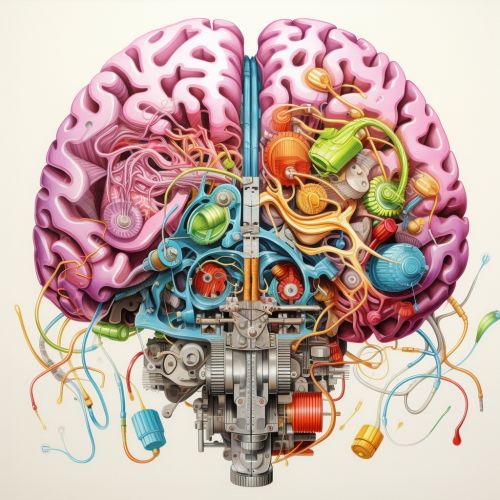Neurophilosophy
Introduction
Neurophilosophy, also known as the philosophy of neuroscience, is an interdisciplinary field that applies the methods and findings of neuroscience to philosophical problems. It is a branch of philosophy of science that deals with issues in neuroscience. Neurophilosophy is a relatively new field, but it has already made significant contributions to our understanding of the brain and mind.


History
The term "neurophilosophy" was coined by philosopher Patricia Smith Churchland in her 1986 book "Neurophilosophy: Toward a Unified Science of the Mind-Brain". Churchland argued that the time was ripe for philosophy to take into account the dramatic developments in neuroscience. She proposed that philosophers should not only be aware of these developments, but should also contribute to them by using their skills in conceptual analysis and their knowledge of the history of ideas.
Key Concepts
Neurophilosophy is based on several key concepts, including the idea that the mind is the brain, the rejection of dualism, and the use of empirical evidence from neuroscience to inform philosophical debates about the mind.
Mind-Brain Identity
One of the central tenets of neurophilosophy is the mind-brain identity theory, which holds that mental states are identical to brain states. This view is a form of physicalism, the philosophical position that everything that exists is physical or depends on the physical.
Rejection of Dualism
Neurophilosophy rejects dualism, the belief that the mind and the brain are separate entities. Instead, neurophilosophers argue that mental phenomena can be fully explained by physical processes in the brain.
Empirical Evidence
Neurophilosophy relies heavily on empirical evidence from neuroscience. This evidence is used to inform philosophical debates about the nature of the mind, consciousness, free will, and other topics.
Methodology
The methodology of neurophilosophy involves the integration of philosophical analysis with empirical research in neuroscience. This approach is often referred to as "empirical philosophy." Neurophilosophers use the findings of neuroscience to inform their philosophical theories, and they also use philosophical analysis to interpret and evaluate these findings.
Major Topics
Neurophilosophy covers a wide range of topics, including consciousness, free will, perception, memory, and the nature of mental illness.
Consciousness
One of the main topics in neurophilosophy is consciousness. Neurophilosophers use empirical evidence from neuroscience to tackle philosophical questions about the nature of consciousness, such as what it is and how it arises from physical processes in the brain.
Free Will
Another major topic in neurophilosophy is free will. Neurophilosophers use findings from neuroscience to inform debates about whether we have free will, and if so, what kind of free will we have.
Perception
Neurophilosophy also deals with the topic of perception. Neurophilosophers use evidence from neuroscience to address philosophical questions about perception, such as how we perceive the world around us and how our perceptions relate to reality.
Memory
Memory is another important topic in neurophilosophy. Neurophilosophers use findings from neuroscience to inform philosophical debates about memory, such as what it is and how it works.
Mental Illness
Neurophilosophy also addresses the nature of mental illness. Neurophilosophers use evidence from neuroscience to tackle philosophical questions about mental illness, such as what it is and how it should be treated.
Criticisms and Controversies
Neurophilosophy has been subject to several criticisms and controversies. Some philosophers argue that neurophilosophy is reductionist, meaning that it reduces complex mental phenomena to simple physical processes. Others argue that neurophilosophy is overly reliant on empirical evidence, and that it neglects the importance of conceptual analysis in philosophy.
Conclusion
Despite these criticisms, neurophilosophy continues to be a vibrant and growing field. It offers a unique approach to philosophical problems, one that is grounded in empirical evidence and informed by the latest developments in neuroscience. As our understanding of the brain continues to advance, neurophilosophy is likely to play an increasingly important role in our understanding of the mind.
